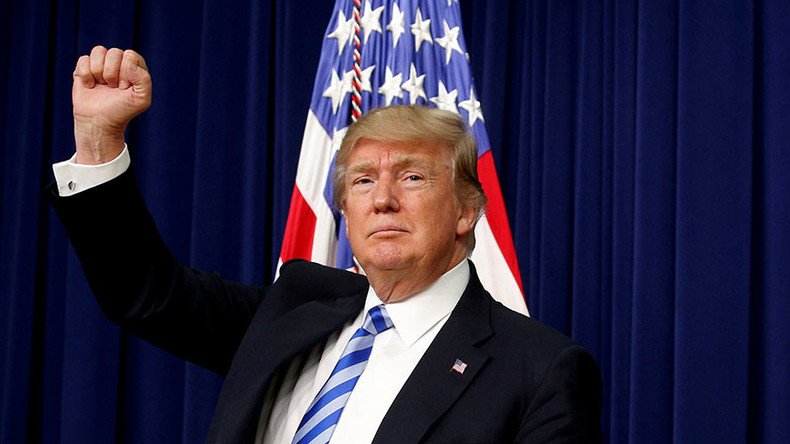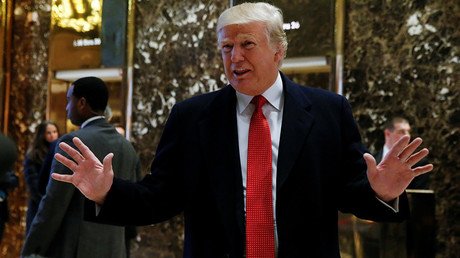Trump effect? Poll shows people’s opinions on policy changes if Trump weighs in

President Donald Trump says he wants to unite a divided country, but a new poll has found that he may be polarizing the public as soon as he gives an opinion on a policy issue.
Reuters/Ipsos polled 14,000 people from February 1 to March 15, asking them to consider “a series of statements” on a variety of topics, including taxes, crime, the mainstream media and more.
The remarks were all based on statements the president made on the campaign trail, but half of the respondents “did not know that the statements came from Trump.” We’ll call this the “blind” group.
For instance, on financial benefits, respondents from the blind group were asked which came closer to their opinion: “I don't care if a government official financially benefits from their position in the government, OR A government official should be forbidden from financially benefiting from their position,” while the other group was asked: “I don't care if Donald Trump financially benefits from their position in the government, OR Donald Trump should be forbidden from financially benefiting from their position.”
The Trump effect: How attributing a statement to Trump affects the public opinion of that statement - https://t.co/gI9vaN8UfWpic.twitter.com/cAytHoR6g4
— Reuters Graphics (@ReutersGraphics) April 6, 2017
In the blind group, 22 percent of Democrats and 33 percent of Republicans said they didn’t care if a government official profited from their position. However, in the other group, 28 percent of Democrats and a full 70 percent of Republicans said that Trump should be able to profit from his position.
In interviews after the poll, several respondents said they knew they were carving out special exceptions for Trump. The president has been accused of violating the Emoluments Clause of the Constitution, which prohibits federal officials from accepting gifts or titles from foreign governments, but supporters said they trusted Trump, and he had earned the right to do so.
"He is a very intelligent man,” said Susie Stewart, 73, from Fort Worth, Texas. “He’s proved himself to be one hell of a manager. A builder. I think he has the business sense to do what’s best for the country.”
Although the conflicts of interest question had the biggest swing between the two groups, changes in opinions of various levels occurred on questions about healthcare and pre-existing conditions, “American exceptionalism,” the media, judges and politics, abortion, tax credits, the nuclear arsenal, infrastructure spending, taxation of imports, and inner city crime.
On healthcare, blind respondents were asked if the government should take care of everybody, and whether the government should pay for it, while the other group was asked to agree or disagree with the same statement as “made by President Donald Trump.” Democrats in the blind group were 68 percent in favor of government involvement, compared to 47 percent of Democrats who knew Trump supported it. On the Republican side, a third of the blind group supported it, while 39 percent opted for government involvement if Trump was for it.
“I’m basically in disagreement with everything he says,” Howard House, 58, a Democrat from Jacksonville, Florida, who took the poll, told Reuters/Ipsos. “I’ve almost closed my mind to the guy.”
If the president said the sky was blue, “I’m going to go outside and check,” House said.
The pollsters deemed this “the Trump effect,” and noted that their results suggest “any effort to reach a consensus on key policy issues could be complicated simply by Trump's involvement.”
It’s unclear what people’s motivations for choosing the answers they did may be. It could be that respondents looked past the question and answered in a way that would support or oppose Trump, while others may not have thought deeply about the issue and looked to the president as a guide, either for or against, John Bullock, an expert in partisanship at the University of Texas at Austin, told Reuters.
“They think of him either as a man who shares their values or someone who manifestly does not,” Bullock said.













